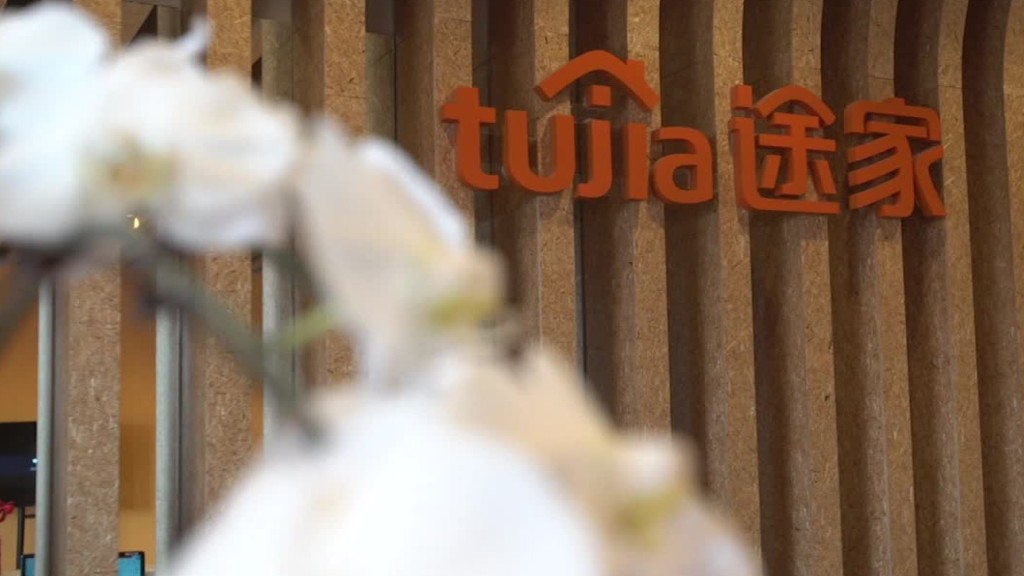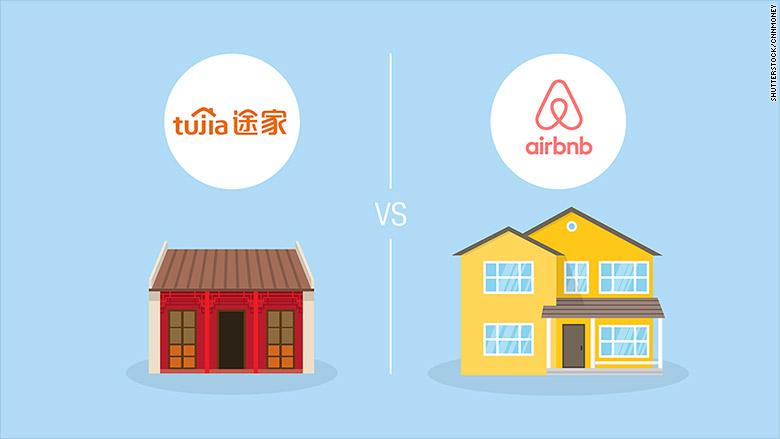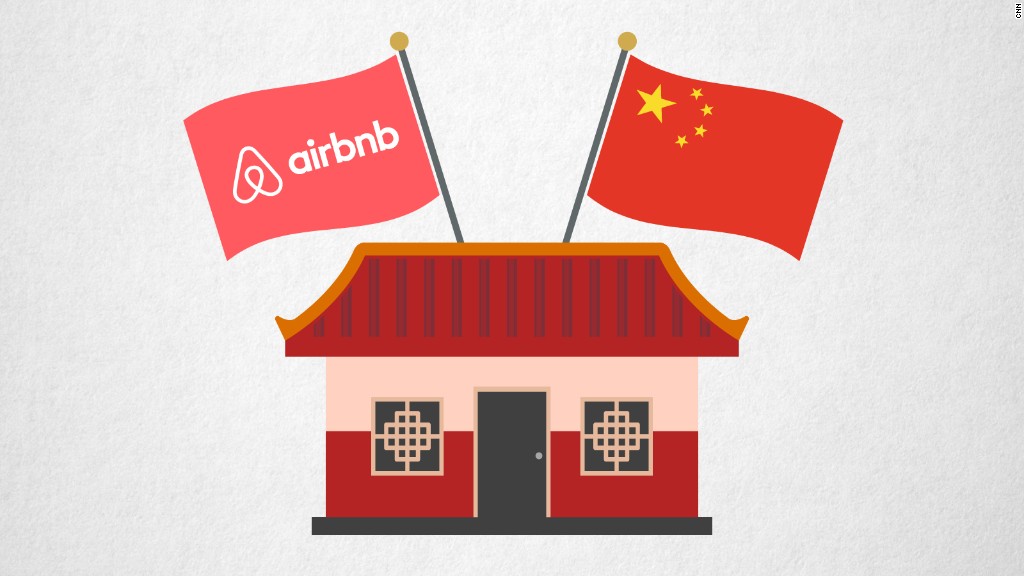
Tujia is taking its rivalry with Airbnb global.
China's leading home-rental site has been a thorn in Airbnb's side in the world's most populous country. It's often referred to as a clone of the U.S. startup, but Tujia co-founder Melissa Yang takes issue with that.
"We are not copying anyone's business model," she said in an interview.
Tujia first started out renting out vacation properties that were essentially mini-hotels, fully run by Tujia staff.
The home-rental side of the company -- which, like Airbnb, connects property owners with travelers looking for alternatives to hotels -- came later. But to address Chinese hosts and travelers' general wariness, Tujia offers a broader range of services than Airbnb, like inspecting and cleaning properties.
Related: Airbnb makes a late play for China
Now, Tujia is chasing the rapidly growing number of Chinese people traveling abroad to popular destinations in Southeast Asia, Japan and South Korea. The company is currently seeking a fresh round of funds, in part to help expand products and properties abroad.
Tujia set up a small team in Japan in 2016, and Yang says bookings have now quadrupled there in just one year.
"We know China travelers the best," Yang said. "We follow whatever Chinese travelers want."

That includes following them to countries where Airbnb has already claimed a stake.
Airbnb has been targeting overseas Chinese travelers for years. It says one of the reasons it's expanding in Japan at the moment is to gain more traction and name recognition among Chinese visitors to the country.
Airbnb is also stepping up its efforts in China, a market it had neglected for years. It has just 80,000 listings in China, compared with Tujia's 430,000.
Related: Airbnb raises $1 billion in funding
Yang says she welcomes the competition on Tujia's home turf.
"Tujia doesn't want to be the only company to educate the market," she said. "We welcome players to join us."
While Tujia has the bigger scale in China, Yang acknowledges that Airbnb is in a strong position to attract overseas Chinese travelers.
The U.S. startup has 3 million listings worldwide, compared with Tujia's 20,000 outside of China.

Yang has a strong sense of wanderlust herself. She lived in the U.S. for more than a decade and has traveled all over the world.
After graduating from Tsinghua University -- known as China's MIT -- with a degree in automation, she studied computer science in the U.S.
While living in Seattle in 2006, Yang founded Escapia, a startup that provided vacation rental software. It caught the eye of Airbnb rival HomeAway, which bought it for about $10 million in 2010, according to SEC filings.
Related: Watch out Uber, Didi just launched an English app
Yang then moved back to Beijing to work with Microsoft (MSFT), but soon felt the pull of entrepreneurship again.
She co-founded Tujia in 2011. The company became a unicorn -- a startup worth $1 billion or more -- in 2015.
Yang regularly travels to Silicon Valley, a place that reminds her, in some ways, of Beijing. Both destinations are full of young people with big dreams, hungry to start their own business and learn new technology, she said.
In her opinion, Silicon Valley and Beijing "are the most exciting places for entrepreneurs in the world."
President Trump has recently taken steps to overhaul the H-1B visa system that many Silicon Valley companies use to bring in foreign tech talent, a development Yang called disappointing.
Countries should be openly competing for the best tech talent, she said.
Related: Indian tech boss: Trump's H-1B visa curbs 'will hurt'
Yang recently stepped back from Tujia's day-to-day operations, and is searching for promising startups in China as an entrepreneur in residence with investment firm IDG Capital.
Like many in the tech industry, she believes artificial intelligence will fundamentally change the world.
To the big AI question -- Are we all going to be replaced by robots? -- she has a blunt answer:
"Sooner or later, yeah."
-- Yuli Yang contributed to this report.

